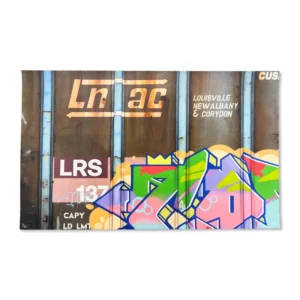

The country that gave the world Monty Python, Mr. Bean, and The Office is about to get a slice of live, cue-card-reading Americana. But can a nation that revels in absurdism, irony, and satire adapt to the tightly timed, celebrity-anchored format of “Live from New York”?
Starting in 2026, the United Kingdom will premiere its very own version of Saturday Night Live, airing weekly on Sky, and produced in connect with the long-standing American original. It marks the latest—and most ambitious—attempt to localize the iconic NBC sketch series outside of the United States. The cast is still yet to be announced, but the production has already generated buzz across British comedy circles. Some are hopeful. Some are skeptical. Most are waiting to see if this famously American export can find a proper British home.
The mastermind still at the helm is Lorne Michaels, the Canadian-born, New York–based executive producer who launched SNL in 1975 and turned it into one of the longest-running shows in American television history. Now 80 years old, Michaels has spent decades testing international waters for the brand. And the UK market, with its globally respected comedic tradition, feels like both a logical next step—and an extraordinarily difficult one.
Comedy Without Borders? The International Struggle of SNL
This isn’t the first time Saturday Night Live has tried to pack up its wigs and wigs and take the show on the road.
The most successful international version to date has been SNL Korea, which ran for 15 seasons and continues to air today. Its success has been credited to strong localization, a fresh pool of comedic talent, and a willingness to deviate from the American formula when needed. Other iterations in Germany, Italy, Egypt, and Japan managed between four and five seasons, with varying degrees of success.
Then there were the failures—many of them. In France, the version known as Le Saturday Night Live lasted just one episode. Versions in China, Russia, Spain, Quebec, and Brazil were swiftly canceled. Each attempted to preserve the SNL format: live sketch performances, musical guests, guest hosts, cold opens, and the Weekend Update-style news satire. But few could reproduce the alchemical blend of political satire, pop culture parody, and rapid-fire sketch that made the New York version iconic.
The UK, meanwhile, has proven resistant to the SNL blueprint for decades—even though it shares the same language and a rich comedic heritage. It’s not for lack of trying. Shows like Saturday Live (1985–1988), The 11 O’Clock Show (1998–2000), and Saturday Zoo (1993) all attempted some version of sketch/comedy-news fusion—but none of them had the staying power of SNL.
So the question looms: Why now? And why again?
Timing is Everything—Even in Comedy
According to NBCUniversal insiders, the decision to launch SNL UK in 2026 stems from two intersecting trends: global streaming behavior and renewed interest in British comedic talent on international stages. British actors like Phoebe Waller-Bridge, Ramy Youssef, and Michaela Coel have shown that UK-grown talent can thrive on both sides of the Atlantic. Meanwhile, UK-based sketch groups like Horrible Histories, Famalam, and The Mash Report have developed loyal fan bases—online and off.
With Sky backing the broadcast and Peacock expected to carry select segments globally, the infrastructure is finally in place to support an ambitious, consistent rollout. The goal is not to mirror SNL US beat-for-beat, but to capture its spirit—live, topical, self-aware—and let it evolve through a British lens.
That won’t be easy. As Guardian comedy critic Brian Logan noted in a recent op-ed: “They’re quite different comedy cultures. American satire is about punchlines and impact. British satire is about discomfort and absurdity. One goes for applause; the other, for awkward silence.”
What Makes British Comedy So… British?
To understand why adapting SNL to the UK is so risky, you need to consider what defines British comedy at its core.
- Irony over spectacle: British audiences tend to favor irony, understatement, and discomfort over celebrity cameos and high-energy punchlines.
- Character-based sketch: Think of The Fast Show, Little Britain, or League of Gentlemen—shows built around surreal, recurring characters rather than political skits.
- Satire as institution-busting: British satire tends to be aimed inward, often targeting its own establishment—see Yes Minister or Have I Got News for You—whereas American SNL often chases mainstream political figures and viral currency.
Will British viewers accept a sketch format where a “host” delivers a monologue to camera, often aided by cue cards and a studio audience trained to applaud?
Will the UK press eviscerate it after two episodes if it doesn’t land like Peep Show or Fleabag?
Or is there room for a new genre of sketch—a transatlantic hybrid, rooted in live performance and adapted to UK sensibilities?
What We Know So Far: Format and Flow
The show will be shot weekly in front of a live audience, likely from a London studio. Each episode will feature a rotating celebrity guest host, a live musical performance, and a main ensemble cast of emerging British comedians—mirroring the structure of its American counterpart.
Weekend Update, a cornerstone of SNL US, will reportedly appear in adapted form, with a news satire segment written by British writers and delivered in British cadence—perhaps echoing formats like The Day Today or Mock the Week.
Sky has remained tight-lipped on casting, but insiders suggest that the producers are focused on diversity across regional accents, race, gender, and class, aiming to reflect the full spectrum of modern British identity.
One producer noted anonymously: “We don’t want a London-only show. We’re looking at Manchester, Birmingham, Glasgow, Cardiff, Belfast. It has to feel like it belongs to the country, not just the capital.”
A Homegrown Cast of the Future?
The success of the new SNL UK will likely hinge on the cast’s chemistry—as it has in every version of the show. Think of what the original SNL ensemble did for the careers of Bill Murray, Gilda Radner, John Belushi, and later Eddie Murphy, Tina Fey, Kristen Wiig, and Kate McKinnon.
The UK has no shortage of talent. Rising stars in stand-up, improv, and character sketch could make up the backbone of a future SNL UK household cast. Names like Jordan Gray, Rosie Jones, Munya Chawawa, Lolly Adefope, and Tim Renkow come up frequently in speculation.
Casting will be critical not just for ratings but for the long game—building a universe of characters, impressions, and sketches that become culturally embedded.
What’s at Stake?
For Lorne Michaels, this UK venture may be his last major global franchise attempt under the SNL brand. With his retirement looming, and the American media landscape in flux, the UK show is a kind of legacy project—a final effort to make SNL resonate globally.
For Sky, the risk is commercial: can a format with deeply American DNA be successfully “naturalized” without becoming a parody of itself?
And for British comedy fans, the stakes are cultural. Will SNL UK become another footnote in a long list of ill-fated imports? Or can it break the mold, bringing live, topical sketch comedy back into primetime with an edge that’s unmistakably British?
Impression
In the best-case scenario, SNL UK will become a launchpad for a new generation of British talent—blending live sketch, celebrity parody, and political satire into something not quite American, not quite British—but unmistakably current.
In the worst-case scenario, it’ll be another Le Saturday Night Live—cancelled before the second weekend.
Still, there’s reason for optimism. The infrastructure is stronger. The talent pool is deeper. And the hunger for new voices in late-night comedy—especially those live, unscripted, and joyfully imperfect—has never been higher.
No comments yet.








